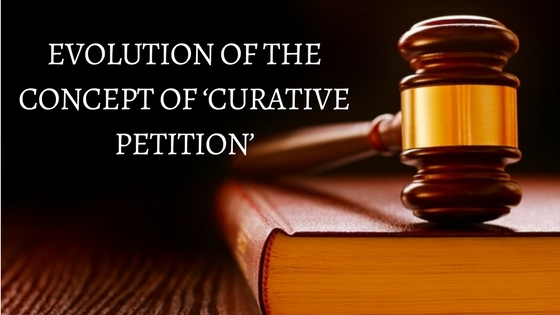Aapka Consultant Judgment Series- In this series, we are providing case analysis of Landmark Judgments of Hon’ble Supreme Court of India.
Rupa Ashok Hurra v. Ashok Hurra & Anr.
AIR 2002 SC 1771: (2002) 4 SCC 388
JUDGES: S.P. Bharucha, S.S.M. Quadri, U.C. Banerjee, S.N. Variava and Shivaraj V. Patil
Date of Decision: 10-04-2002
FACTS:-
These writ petitions have come up before this Court because a Bench of three learned Judges of this Court had referred the first writ petition to a Constitution Bench by observing thus:
“Whether the judgment of this Court dated March 10, 1997 in civil Appeal No.1843 of 1997 can be regarded as a nullity and whether a writ petition under Article 32 of the Constitution can be maintained to question the validity of a judgment of this Court after the petition for review of the said judgment has been dismissed are, in our opinion, questions which need to be considered by a Constitution Bench of this Court”.
ISSUE:-
Whether an aggrieved person is entitled to any relief against a final judgment/order of this Court, after dismissal of review petition, either under Article 32 of the Constitution or otherwise?
JUDGMENT:-
The Hon’ble Supreme Court of India has observed that it has been conferred with the power of review under Article 137 of the Constitution of India. The role of judiciary to interpret and declare the law was a concept of by-gone age. It is no more open to debate as it is fairly settled that the courts can so mould and lay down the law formulating principles and guidelines as to adapt and adjust to the changing conditions of the society with the ultimate objective being to dispense justice. This Court observed that though the Judges of the highest Courts can do their best in dispensing justice, yet situations may arise, in the rarest of rare case, where requires reconsideration of final judgment to set right miscarriage of justice complained of. In such type of cases it would not be proper but obligatory on the part of the Courts both legally and morally to rectify the error. The Courts persuaded to hold that the duty of the Courts to do justice in these rarest of rare cases shall prevail over the policy of certainty of judgment as though it is essentially in public interest that a final judgment of the final court in the country should not be open to challenge yet there may be circumstances arises wherein declining to reconsider the judgment would be oppressive to judicial conscience and cause perpetuation of irremediable injustice. This power must necessarily be sparingly used only in exceptional circumstances for furthering the ends of justice.
The Court further observed that the petitioner is entitled to relief ex debito justitiae if he establishes- (i) violation of principles of natural justice in that he was not a party to the lis but the judgement adversely affected his interests or, if he was a party to the lis, he was not served with notice of the proceedings and the matter proceeded as if he had notice, and (ii) where in the proceedings a Ld. Judge failed to disclose his connection with the subject-matter or the parties giving scope for an apprehension of bias and the judgment adversely affects the petitioner. The petitioner shall specifically aver that the aforementioned grounds had been taken in the review petition and that it was dismissed by circulation. The curative petition shall contain a certification by a Senior Advocate with regard to the fulfillment of the above requirements. The Court also directs that the curative petition has to be first circulated to a Bench of the three senior-most Judges and the Judges who passed the judgment complained of, if available. It is only when a majority of the learned Judges on this Bench conclude that the matter needs hearing that it should be listed before the same Bench (as far as possible) which may pass appropriate orders. It shall be open to the Bench at any stage of consideration of the curative petition to ask a senior counsel to assist it as amicus curiae. In the event of the Bench holding at any stage that the petition is without any merit and vexatious, it may impose exemplary costs on the petitioner.
HELD:-
The Court held that in order to prevent abuse of its process and to cure gross miscarriage of justice, it may reconsider its judgments in exercise of its inherent powers. For this purpose the Court has devised what has been termed as a “curative” petition.
To Get Legal Opinion from Advocates/ Legal Experts, Please click here
To Get Legal Opinion from Retired Hon’ble Judges, Please click here












